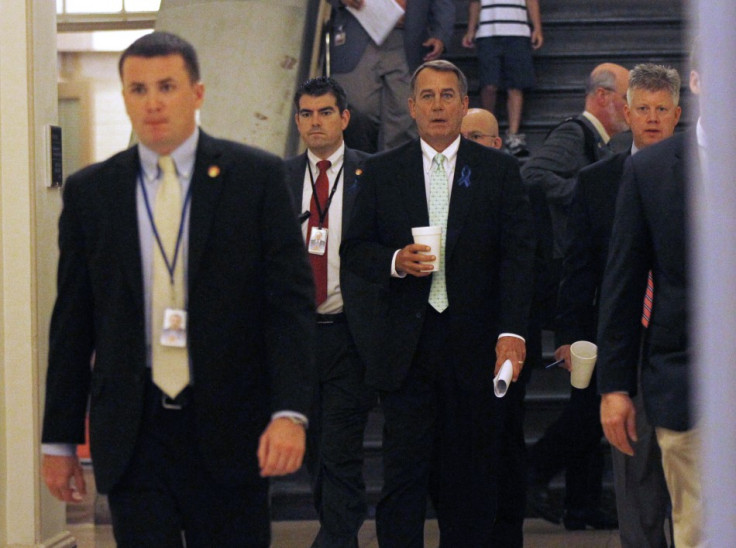U.S. Debt Limit: Will the Republican Crisis Profit the Democrats?

US Republican leaders are frantically trying to rescue their deficit-cutting bill hours as the party, fractured and divided, struggles to find a consensus.
A House of Representatives vote planned on Thursday night had to be re-scheduled after the plan proposed failed to heal the rift that divides the Conservative leading observers to say an internal revolt now threatens the party, which in due of the Presidential elections in 2012, does not come as good news for their partisans.
Following the clash, House Republicans were meeting for closed-door crisis talks on Friday.
The fiscal fiasco that has struck the U.S. could bring the hegemon closer to a potentially catastrophic default on federal debt next week on Wednesday August 2, after which the White House has warned the government will struggle to pay all its bills unless a $14.3tn (£8.7tn) borrowing limit is increased by 2 August.
Washington says the government might not have enough cash to pay bills such as its $23 billion in Social Security benefits bill due Aug. 3, a $87 billion payment to investors to redeem maturing Treasury securities and more than $30 billion in interest payments due Aug. 15.
Following a situation that is becoming more critical by the day, President Barack Obama is set to give a White House statement to media about the status of the debt negotiations on Friday, having already addressed the nation on Monday.
The US treasury department might now also be forced to unveil emergency plans explaining how the government would function if Congress does not agree to raise its borrowing limit.
Meanwhile, House Speaker John Boehner, desperate for his plan to pass, headed a a closed meeting made up of all 240 House Republicans on Friday morning, where he was expected to reveal the latest tweaks he has made to the legislation overnight.
The rift in the Republican party opposes Boehner's supporters to the Tea Party supporters who won House seats last year and are firmly opposed to raising the debt limit under and say the Boehner bill would not cut enough from the US budget.
Mr Boehner's plan, which the politicians himself acknowledged is "not perfect", would reduce spending by about $900bn and raise the debt limit by nearly the same amount.
The plan's implementation is even more threatened by the rejection it faces from the Democratic-controlled Senate and faces a veto from Washington.
The White House also insisted the bill did not meet President Barack Obama's demand for an increase in the debt limit that large enough to prevent a re-run of the current crisis next year to avoid interfering with the 2012 election campaign, and the administration has hinted at the possibility of the President vetoing the proposition.
Obama has made it clear he supports an alternative plan drafted by Senate Majority Leader Harry Reid, D-Nev., that contains comparable cuts to agency operating budgets but also claims savings from lowball estimates of war costs.
According to Reid, his plan would provide up to $2.7 trillion in additional borrowing authority, enough to tide the government over through 2012, and thus after the Presidential campaign.
Meanwhile analysts now say that if Republicans cannot pass a bill, the Senate could pass legislation first, which would increase the president's leverage, which explains the Republicans attempt to find a consensus, as they fear President Obama, together with the Senate Democrats could shape a bill to their preferences, pressurising the House Republicans into accepting it to save the U.S. from falling into default.
Rumours that such an operation could be underway were reinforced when Senate Democrat Harry Reid said late on Thursday that he may put his own deficit-cutting bill to a vote in the Senate.
It now remains to be seen whether or not the U.S. will manage to get out of this crisis without being too badly hurt and while the country might still be able to avoid getting into default, the internal rift within the House Republicans will be hard for the party to recover from.
© Copyright IBTimes 2025. All rights reserved.





















